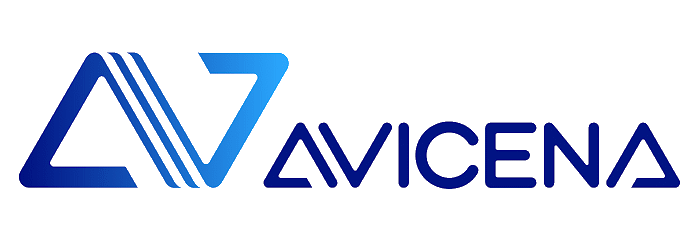In today’s competitive job market, hiring the right candidate can be a daunting and time-consuming task. Companies often find themselves sifting through hundreds of resumes, conducting multiple interview rounds, and still facing the risk of a bad hire. At Octopyd, we are revolutionizing the hiring process with our referral-based platform, which taps into a network of subject matter experts (SMEs) to recommend top talent. But that’s just the beginning. What sets Octopyd apart is our 7-tier vetting process, which significantly increases the quality of the candidates we refer to companies.
Our 7-tier vetting mechanism ensures that every candidate goes through a rigorous assessment process that focuses on technical skills, cultural fit, reliability, and long-term potential. This system has led to some of the highest retention rates in the industry. In this blog, we’ll take you through how our 7-tier vetting process works and why it’s so effective in delivering high-quality hires.
1. Expert Referral: Leveraging Trusted Networks
The first step in Octopyd’s 7-tier vetting process starts with SME referrals. Subject matter experts within a specific field refer candidates from their professional networks. These experts have deep knowledge of the industry and understand the technical and cultural requirements of the role, ensuring that the referred candidates already meet a high standard before moving forward.
This step ensures that we start the process with high-quality candidates who come with a personal recommendation from trusted professionals. This reduces the time spent on unqualified candidates and focuses on individuals who are more likely to excel.
Why this matters: Starting with expert referrals ensures that only the best candidates enter the pipeline, saving time and improving hiring efficiency.
2. Initial Screening: Reviewing the Basics
Once a candidate is referred, the next step involves an initial screening. Our team reviews the candidate’s resume and professional background to ensure they meet the minimum qualifications for the role. This includes verifying education, work experience, and any certifications relevant to the position.
By conducting this initial review, we ensure that only candidates who have the necessary background and qualifications move on to the next stages.
Why this matters: The initial screening filters out candidates who lack the essential qualifications, ensuring that only suitable candidates continue in the process.
3. Skills Assessment: Testing for Technical Proficiency
In specialized roles, technical skills are critical to success. Octopyd’s third tier focuses on skills assessment, where we evaluate the candidate’s technical expertise. This may involve written tests, practical assessments, or problem-solving exercises, depending on the requirements of the role.
Our SME network plays a crucial role in this step by helping to design the tests and evaluating the results. They ensure that the assessments are relevant to the role and accurately measure the candidate’s ability to perform the job.
Why this matters: A thorough skills assessment ensures that candidates have the technical proficiency necessary to succeed in the role, reducing the risk of hiring someone who isn’t up to the task.
4. Cultural Fit Evaluation: Aligning with Company Values
One of the main reasons for employee turnover is a poor cultural fit. No matter how skilled a candidate is, if they don’t align with the company’s culture, they’re unlikely to stay for the long term. That’s why the fourth tier of our vetting process focuses on evaluating cultural fit.
We assess the candidate’s personality, communication style, and values to ensure they align with the company’s mission and work environment. This step is crucial in fostering long-term engagement and reducing turnover.
Why this matters: A good cultural fit leads to higher employee satisfaction, better team dynamics, and lower turnover rates.
5. Background and Reference Checks: Ensuring Credibility
After a candidate passes the cultural fit evaluation, we conduct thorough background and reference checks. This step verifies the candidate’s employment history, education, and any claims made during the interview process. Additionally, we contact references to gain deeper insights into the candidate’s work ethic, reliability, and overall performance in previous roles.
At Octopyd, we leave no stone unturned in this process. By verifying all claims and speaking to trusted sources, we ensure that the candidate is not only technically qualified but also credible and trustworthy.
Why this matters: Conducting background and reference checks reduces the risk of hiring candidates with discrepancies in their work history, protecting the company from potential issues down the line.
6. AI-Driven Public Information Review: Additional Insights
In the sixth tier, we incorporate AI-driven public information reviews. Our platform uses advanced AI tools to analyze public data about the candidate, including their social media presence, online publications, and public reviews. This helps to identify any red flags that may not have surfaced in previous stages and provides additional context about the candidate’s reputation and behavior in public forums.
This innovative use of AI allows us to gather valuable insights that might not be readily available through traditional vetting methods, giving us a more complete picture of the candidate.
Why this matters: The use of AI in reviewing public information ensures that no detail is overlooked, further reducing the risk of a bad hire.
7. Final SME Panel Review: Holistic Candidate Assessment
The final step in Octopyd’s 7-tier vetting process is the SME panel review. Here, a panel of subject matter experts reviews the candidate’s performance across all previous stages. This holistic assessment ensures that the candidate meets all technical, cultural, and professional standards. The panel discusses the candidate’s long-term potential, their ability to adapt to the role, and their fit within the company.
Once the SME panel approves the candidate, they are recommended to the hiring company. At this stage, the candidate has been thoroughly vetted and is ready to succeed in the role.
Why this matters: A final review by a panel of experts provides a comprehensive assessment, ensuring that the candidate is fully vetted and qualified for the role.
The Impact of Octopyd’s 7-Tier Vetting Process
The meticulous and structured nature of our 7-tier vetting process results in several key benefits for companies:
-
Higher Quality of Hires: By filtering out unqualified candidates at each stage, we ensure that only the best candidates reach the final recommendation stage.
-
Reduced Turnover: Our focus on cultural fit, alongside technical proficiency, helps ensure that new hires are engaged and aligned with the company’s values, leading to higher retention rates.
-
Faster Time-to-Hire: While our process is thorough, it is also streamlined, allowing companies to find the right talent without long delays.
-
Increased Confidence in Hires: With multiple layers of vetting and SME involvement, companies can be confident that the candidates they hire are ready for success.
How We Can Help
At Octopyd, we’ve designed our 7-tier vetting process to help companies find top talent efficiently and reliably. By combining expert referrals, AI-driven insights, and thorough vetting, we ensure that companies only receive candidates who are both technically proficient and culturally aligned. Our approach has led to some of the highest retention rates in the industry.
If you’re ready to revolutionize your hiring process and bring top-tier candidates into your organization, Octopyd is here to help.

















